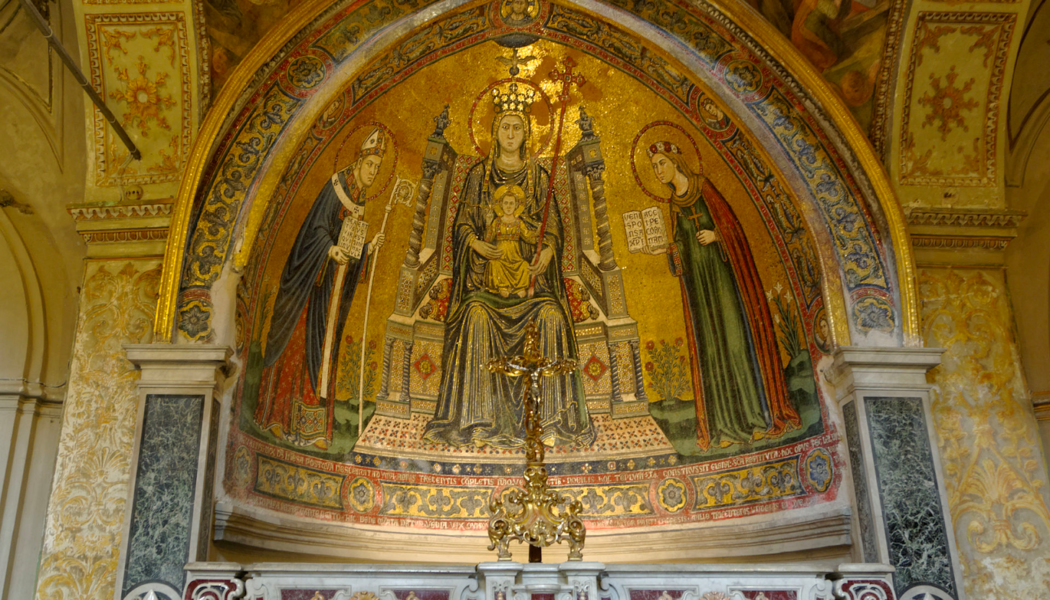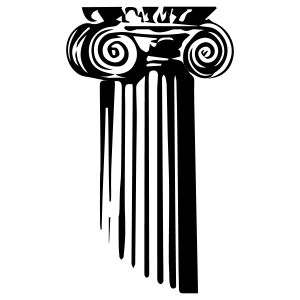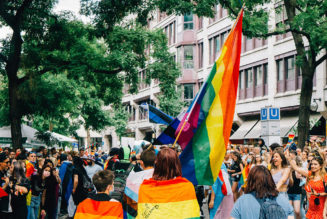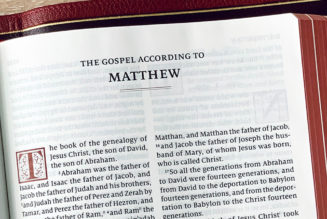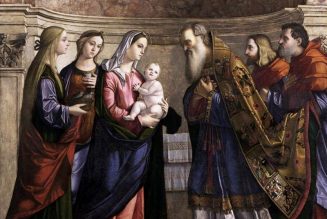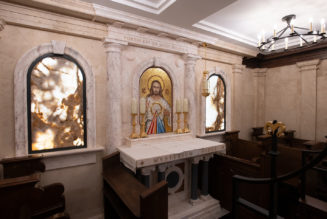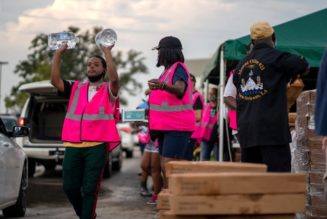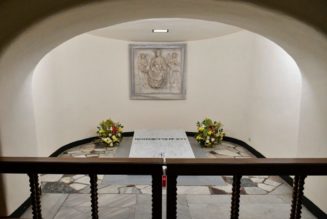Hey everybody,
Welcome to The Tuesday Pillar Post.
Today is the feast of St. Restituta of Africa.
She was born in North Africa, probably in Carthage, which was for a while one of the largest cities in the Roman Empire, and a center of early Christianity in Africa.
The writer Tertullian noted in the second century that Christians in Carthage “have filled every place among you —cities, islands, fortresses, towns, market-places, the very camp, tribes, companies, palaces, senate, forum; we have left nothing to you but the temples of your gods.”
Restituta was one of those innumerable Christians.
Like a lot of others, she died a martyr, either in 255, or in 304, during an imperial persecution. She wrote nothing we have record of, we have no historical account of her Christian fervor, or devotion, or holiness.
But here’s what we know: In the year 429, a Vandal king named Genseric, an Arian, took control of the province of Carthage, and began a period of brutal Christian persecution. Priests were tortured, believers were beaten. Hundreds were martyred, and King Genseric either destroyed Christian churches, or handed them over to the Arians. Christianity in North Africa was nearly wiped out.
Christians fled. And some of those fleeing Christians took the time to bring the relics of St. Restituta with them, carefully carrying them across the Mediterranean, and to the city of Naples.
The relics were interred in a church there in Naples, which was rededicated to Restituta’s intercession. At the church, the Berber martyr Restituta has been venerated for centuries at the altar, in the Holy Sacrifice of the Mass.
I’m fascinated by our devotion to mostly anonymous saints. It’s an expression of faith in the tradition of the Church, in the judgment and devotion of believers who came long before us. Begging the intercession of a mostly anonymous saint, whose bones are preserved from the pious devotion of Christian long ago, is a very cool gift of our Church’s continuity.
And by the way, readers, if you and I are remembered centuries after our deaths as faithful servants of God — and if almost nothing else is known of who we were or what we did — it will be more than enough. Nothing else really matters, does it?
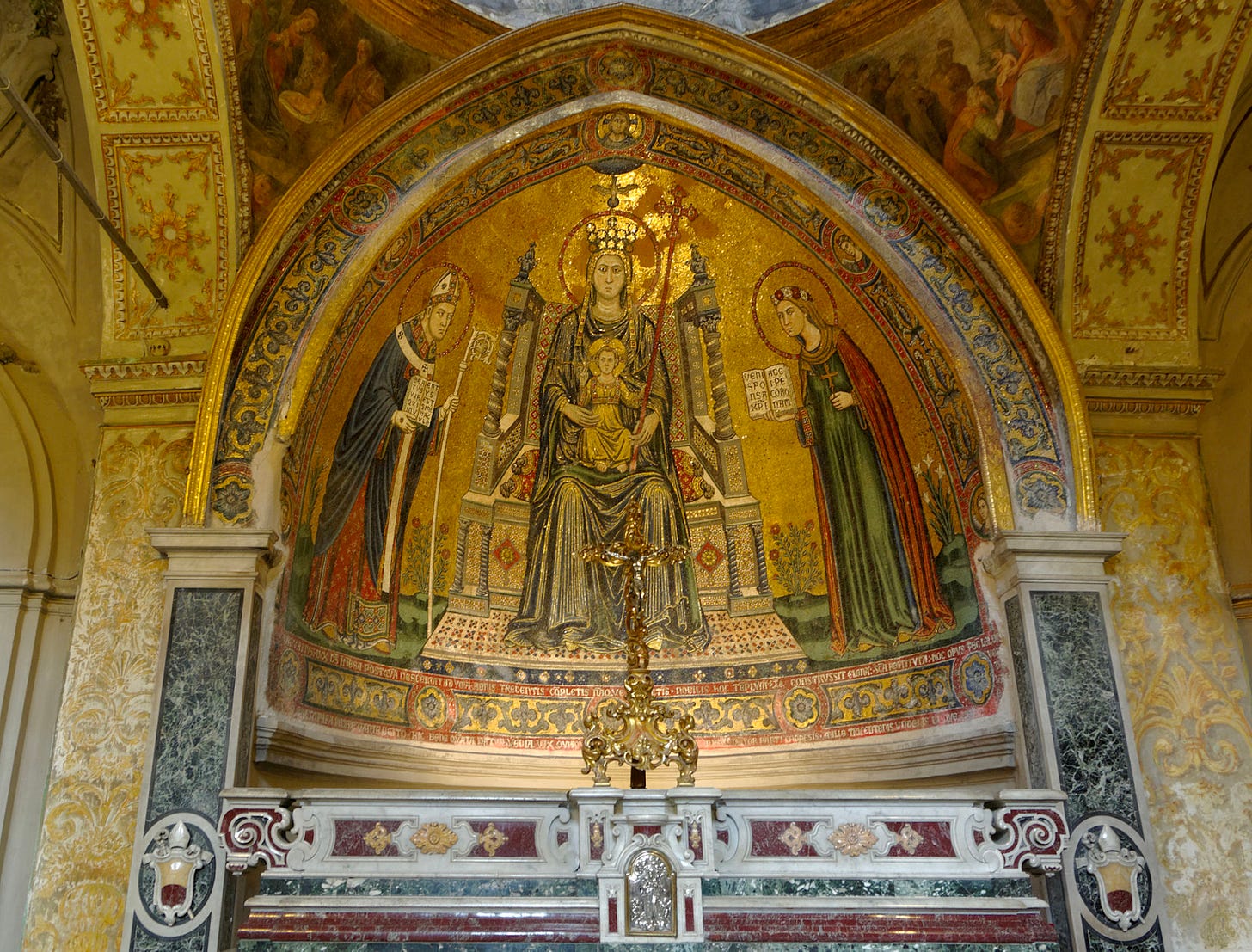
The news
Russia’s full-scale invasion of Ukraine began almost three months ago, on February 24. A lot has changed in the country since then – and in the world: Sweden and Finland are aiming to join NATO, inflation is climbing, and the war is expected to cause major food shortages in the places dependent on Ukraine’s grain exports – especially Africa and the Middle East.
Even as Ukrainian forces push back, and have liberated some parts of their country from Russian occupation already, the country will be changed for generations by the war.
And the Church’s pastoral ministry in Ukraine is in triage mode – trying just to offer the sacraments, the Gospel, and a witness of hope to a country in which poverty and despair are setting in.
So how do you do it? What does a pastor do in a place like Ukraine? The Pillar’s Ukraine correspondent, Anatolii Babynskyi, talked with bishops and pastors across Ukraine about what their pastoral ministry actually looks like right now.
Here’s what just one bishop told us:
“North Saltivka is almost destroyed. Our church, thank God, remained intact. When there was heavy shelling, people lived in the chapel in the basement.”
“Despite everything, we didn’t stop the worship services in the church, and people continued to come. Near the border with Russia, one of our parishes is under occupation. The priest was forced to leave there. Another priest also managed to leave Izium. He sat in the basement for more than a week under constant bombardment.”
“Every day, we help about 1,500 people with food and everything they need. Some people survive only because of this help.”
Another priest talked about the witness of Christians in a city under siege:
“People who didn’t know each other before worked as one. Women, elders, and children were building barricades together, hauling sandbags. The Russians couldn’t take the city and took vengeance, bombing the social infrastructure, shelling hospitals. They destroyed the water main, and we were delivering water to people around the city.”
“I was amazed at how people could organize themselves so that everyone in need could get that water. The sick, the elderly, and those who couldn’t come on their own. My heart was bleeding when I saw the elderly and disabled people who had to go get that water because nothing worked,” Fr. Zymak said.
Readers, this report is powerful. It’s a witness to the Church alive, as bombs fall around it, and as people struggle for the meaning of their suffering. There are your brother priests, or your fellow believers, living the Gospel, and, as one pastor put it, “to show our frailty is to be authentic.”
—
Catholic businessman, publisher, and democracy activist Jimmy Lai is incarcerated in a Hong Kong prison these days, serving time for violating the HK National Security Law, and facing the prospect of additional charges.
But even while Lai is in prison, the Catholic University of America gave him an honorary doctorate this Saturday, hoping to shine a light on the cause of Catholics, and others, working to call for civil liberties and respect for human dignity in Hong Kong.
The honorary degree was accepted by Jimmy Lai’s son Sebastian — and Ed sat down with the younger Lai this weekend, to talk about what’s happening now in Hong Kong.
“It’s pretty mind blowing what is happening right now,” he said. “As a person from Hong Kong, you would always go to Chinatown in London or wherever, and you’d recognize that people moved there 40 years ago, maybe after Tiananmen Square, and you’d think ‘They had to move here under such circumstances.’”
“But now it has happened to us,” he said.
—
A Melikite Catholic Palestinian journalist – Shireen Abu Akleh – was killed last week while she covered an Israeli Defense Force raid on a refugee camp in the West Bank — and witnesses claim she was deliberately shot by IDF forces targeting her. That claim, as you can imagine, is controversial, and has amplified tension between Israelis and Palestinians in recent days.
But things got even more intense when Israeli police waded in Abu Akleh’s funeral procession on Friday, firing rubber bullets and stun grenades into the crown, and beating some mourners with batons — which the Israeli government say was a justified response to an emerging riot, while Palestinian officials say it was an excessive show of brutal force.
The issue isn’t going away, as violence in Israel and the West Bank has intensified in recent months — and the Church seems poised to play a very active, and public, role in what’s unfolding. Here’s what’s happened.
By the way, some of you are wondering what a “Melkite Catholic” is, I’m sure. I’ll have an interview for you later this week with a scholar of Melkite Catholicism to explain just that. So hold your horses for a minute — answers coming.
—
We reported last week about the Archdiocese of St. John’s, Newfoundland, where 18 parish church buildings are up for sale as part of an archdiocesan bankruptcy filing – including the archdiocesan cathedral.
After our report published, there was a big development for one smalltown parish church featured in our story — Local business leaders, who planned to make a bid on buying the church to redevelop it as a concert space, have now said they will only bid on the parish hall and other outbuildings, making it more likely that parishioners will be able to buy their church building.
This, parishioners say, is good news for their parish community.
This Pillar Post is brought to you by Seton Home Study School.
Seton assists homeschooling parents by providing an academically excellent and authentically Catholic curriculum.
Is homeschooling right for your family? Learn more from Seton Home Study School.
Christ and our mass shootings problem
Finally, there was tragic, infuriating, discouraging, and – sadly – familiar news in the U.S. this weekend. A man in New York killed 10 people and wounded three others in a Buffalo grocery store Saturday, in a shooting spree.
The attack was anti-black racism — the attacker wrote that he planned to “enter [the store] with Bushmaster XM-15 and shoot all blacks,” and, in fact, he drove hours from his house to commit his crime in a densely populated black neighborhood.
He wrote “n*gger” on the barrel of his gun. He had a 180-page racist manifesto online, and a diary that reads like a perverse “how to” guide. He wanted to help secure “the existence of our people,” he said. And he livestreamed the shooting on Twitch.
It is what it seems like — both an insane act of violence, and, as it were, another mass shooting in America, where many of us have become numb and inured to this sequence of events. Where politicians and even religious leaders know the script they’re supposed to follow. Where journalists report all of this with plug-and-play templates they borrow from the last mass shooting.
Soon the Buffalo shooting will be memorialized in the community, the dead will be mourned, some bills will be introduced in some legislatures, and well before most of that, America will have moved on to the next mass shooting.
In fact, there was a mass shooting on Sunday afternoon, at the Irvine Taiwanese Presbyterian Church, which rents space from a different Presbyterian church in Laguna Woods, California.
One person was killed and four were injured at the Taiwanese Presbyterian Church. The motive was Chinese anti-Taiwan sentiment.
I don’t have a piece of wisdom to offer readers on these things. I can only say that evil is endemic to the human condition, that “the world is virtually inundated by sin,” the Catechism says, and by that, man is “weakened and inclined to evil.”
The audacity of the Christian claim is to proffer that we might overcome the condition of sin, and actually become holy — and that by our holiness, we can better secure the goods of justice and freedom.
The Christian claim is the triumph of hope over experience — hope that our prayers, and our efforts to evangelize, and our sacramental ministry, and consecration of the entire world to Christ’s own sacred heart, even, will actually reorder hearts, and families, and communities, to love itself — or rather, to Love Himself.
Our experience confirms that our sin is not easily overcome. And neither is the web of social sins we confront in mass shootings like this weekend’s. If it were easy, or even in our grasp, we would have just solved those problems already. And we haven’t.
I don’t mean this reflection to seem bleak. On the contrary.
I have seen transformative and enduring goodness come through the promises of Christ and His Church. You have too, I’m sure.
We have in the Gospel the sure knowledge of victory over the pervasive evil of mass shootings, and racism, and the myriad social and cultural issues which undergird those things.
We really don’t, as St. Paul says, mourn like those who have no hope.
But we do grieve with those who are grieving, knowing that we have the mandate of proclaiming the Gospel, while this evil thing keeps happening in our nation.
Even if we don’t see the path, the resolution to this pervasive and peculiar national sin – mass shootings – is found in Christ Jesus.
Please don’t misunderstand me. I am not suggesting that we can pray away our mass shooting problem. We need the right gun policies. We need mental health support and treatment access. We need a renewal of family life and human culture. We need the eradication of racism — there are tangible and real things we need to work through and for, for the sake of justice.
But we haven’t accomplished those things, even as we’ve been calling for them for a while. We seem no more able to eradicate social sins than we do our personal sins.
And in both cases we’re tempted sometimes to despair, and sometimes to an idolatry of politics, which expects that we will make the world save if we vanquish our political enemies.
Neither of those is the same as turning to the source of all justice Himself, and asking him to help us become just.
We’re not powerless — but the only lasting power is in Christ himself.
I am certain that real conversion inculcates virtue. I believe that discipleship makes it possible to work for justice.
And I’m realistic — As things stand, personal agendas, political games, profit motives, and performative and divisive moralizing will continue thwarting the path to securing a basic freedom for our neighbors and ourselves — the freedom to go into a grocery store without the prospect that someone will be gunned down in the produce section.
Absent Christ, we have failed to fix this terrible and enduring and utterly stupid problem — we cannot, absent the Lord, figure out even how to stop people from storming into grocery stores and unloading high capacity magazines.
It’s not over-spiritualizing things to say we need a profound social conversion. It’s simply the truth.
And it happens if we who are believers preach Jesus Christ crucified — the way, the truth, and the life.
“The Church exists in order to evangelize … to preach and teach, to channel the gift of grace, to reconcile sinners with God.”
—
On a more practical level, last week we talked with a parish security consultant about what parishes can do in the face of the protests or vandalism that some have seen this month over the prospect that Roe v. Wade might be overturned. He talked about a few things that parishes can do, some fairly easy, to better develop a sense of parish preparedness for security situations.
The interview is worth reading.
—
Flipping icebergs
We’ll be talking this week and next with some journalists who cover the life of the Church in other parts of the world, which impact your life in the Church – we’re aiming to help bring their coverage to you in some interesting ways. And we’re preparing for a trip to Rome in a couple of weeks, and some other ongoing reporting projects that we think really matter. And all of that is thanks to those of you who know The Pillar is journalism worth paying for. So thank you.
On a completely different note, Ned Donavan is an English writer who occasionally pens interesting little histories of the places that make up our world. Here’s a little essay on the department store that once ruled most of Canada. I think you’ll like it.
—
And then this. Because I know you’ll want to watch it:
Be careful on the icebergs out there.
Be assured of our prayers, and keep praying for us. We need it.
In Christ,
JD Flynn
editor
The Pillar
—
This Pillar Post is brought to you by Seton Home Study School, an accredited school assisting homeschooling parents with an academically excellent and authentically Catholic curriculum.
—
Join Our Telegram Group : Salvation & Prosperity
